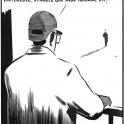We are celebrating the 10-year anniversary of Debats d’Educació by giving the educational community the opportunity to air its views

Member of the Graduate School of Education, Fordham University, and former Schools Superintendent, New York City Public Schools
The three things I’ve learned
Refrain from spontaneous interpretations
A team approach to data analysis builds collective responsibility for student learning
From my ongoing work with teacher teams, I’ve learned that collaborative inquiry not only helps teachers accelerate the learning of their small target group/s, but also promotes a school climate characterized by professional collaborations and high expectations for all students. Training and facilitating these teams is an exciting and rewarding experience as teams quickly move from “seeing” data to engaging in a deeper level of dialogue and data analysis. Once teachers use their experience, knowledge and assumptions to examine summative data, student work, running records, and other data sources, they no longer ‘see’ data, but ‘build’ shared meaning. At this juncture, teachers no longer asks themselves questions such as, What strategies should we implement in the classroom to help these students develop better pieces of writing? but, What strategies should we implement to help these students develop as writers? That is, teachers look for the root causes in learning and seek to ultimately institute data systems that set students on the path to success.
Use test results to establish a context for student-goal setting
I’ve learned that a first-impression frequently becomes a lasting impression; and this is particularly worrisome when a student or a parent interprets a test score. On the other hand, when teachers take the time to inform students about the purpose and use of test results, and engage in constructive conversations about learning goals, the same test result may become the motivation to continue making progress. Thus, a growing number of teachers use these results to help their students to develop and write year-long goals and short-term benchmarks that are relevant, challenging but realistic.A first grader reading goal: “Before the summer, I will be able to read the same long books that second graders read”, turns into an attainable aim when the teacher also helps the student set short-term benchmarks: “This week, I ‘ll read [title & author]… and on Friday, I’ll explain it to my partner during workshop time” . This is a practice that motivates, challenges, and develops a student’s responsibility as learner.













 The texts published on this website are, unless otherwise indicated, covered by the Creative Commons Spain Attribution 3.0 licence. You may copy, distribute, transmit and adapt the work, provided you attribute it (authorship, journal name, publisher) in the manner specified by the author(s) or licensor(s). The full text of the licence can be consulted here:
The texts published on this website are, unless otherwise indicated, covered by the Creative Commons Spain Attribution 3.0 licence. You may copy, distribute, transmit and adapt the work, provided you attribute it (authorship, journal name, publisher) in the manner specified by the author(s) or licensor(s). The full text of the licence can be consulted here: